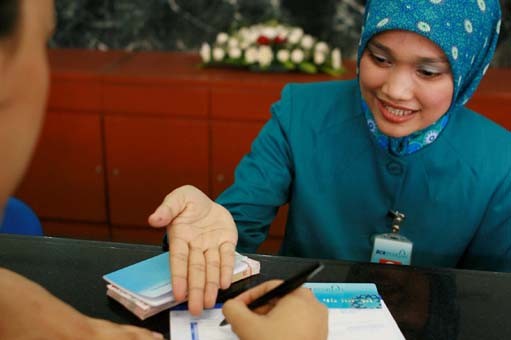Popular Reads
Top Results
Can't find what you're looking for?
View all search resultsPopular Reads
Top Results
Can't find what you're looking for?
View all search resultsAchieving SDGs through Islamic finance
Change text size
Gift Premium Articles
to Anyone
I
slamic finance could help address the sustainable development goals (SDGs). However, it has to be maximized due to its limited contribution in achieving the SDGs in previous years.
The issue was brought up at the annual meeting of the Islamic Development Bank (IDB) held in Jakarta recently. It is the second time that the bank, which was founded in 1973, has launched its annual meeting in Indonesia after the 1995 meeting.
Finance Minister Bambang Brodjonegoro, during his opening remarks on "The Role of Islamic Finance in Achieving the SDGs", said many aspects of the SDGs were covered by Islamic finance.
"Islamic finance can reduce inequality within and among countries, in line with the SDGs that attempt to reduce inequality by empowering the bottom percentile of income earners," Bambang said in Jakarta on Monday.
Bambang highlighted that the world had made progress in eradicating poverty as mandated by the millennium development goals (MDGs). Referring to UN data, he said the target of halving extreme poverty had been accomplished five years ahead of the 2015 deadline.
As world leaders agreed to move further than the MDGs, he warned that the challenges to achieving sustainable development had become more and more dynamic.
"The 2030 agenda comprises 17 development goals that aim to end poverty, fight inequality and injustice and tackle climate change," Bambang said.
"Islamic micro-finance, Sukuk and Islamic social finance fit with the SDGs," he went on to say, arguing that most customers served by Islamic micro-finance were poor people who were not in the banking system.
In addition, the Islamic financial sector broadly aligns with traditional Islamic philanthropy programs such as zakat (alms), sadaqah (charity) and wakaf (donation). These are in line with and able to support the SDGs.
Bank Indonesia Governor Agus Martowardojo added that achieving the SDGs would require a significant financial commitment from various sources given the fact that 1 billion people live in poverty. All funds must be optimized to support the achievement of SDGs, including Islamic finance, he argued.
He expressed his expectation that Islamic finance would contribute to the 2030 agenda and promote sustainable development in the world, not only in Muslim-majority countries.
"However, challenges remain," he went on to say.
Although the Islamic finance industry has performed well of late, growing from US$1 trillion in 2009 to almost $2 trillion in 2014, data shows that Islamic finance can only provide a limited contribution to achieving the SDGs.
"The size of Islamic finance is still very small, representing only 1 percent of total global finance. We acknowledge that some strategic steps have been taken by some authorities to accelerate the development of Islamic finance. However, much more needs to be done," he said.
He said three challenges prevented Islamic finance from helping to achieve the SDGs: the slow pace of Islamic product innovation, the lack of Islamic financial expertise and an inadequate commitment to implementation. (ags)










